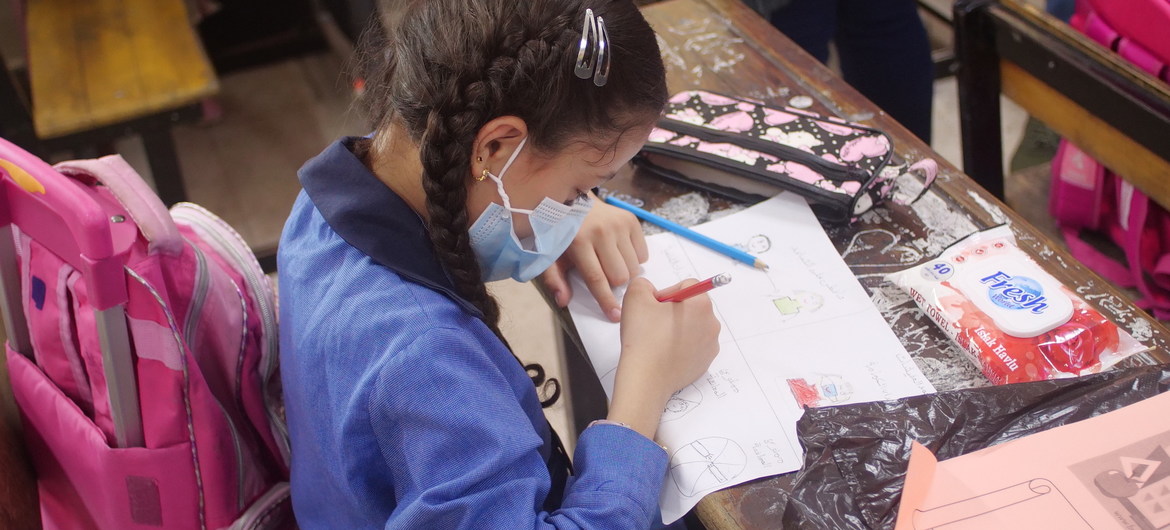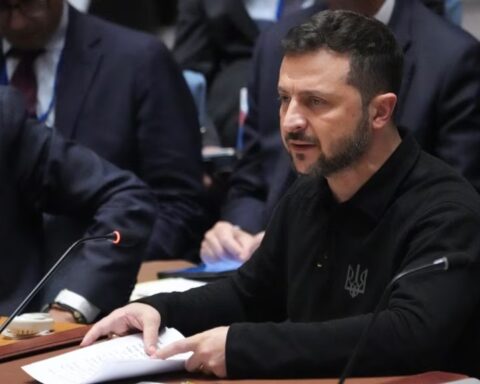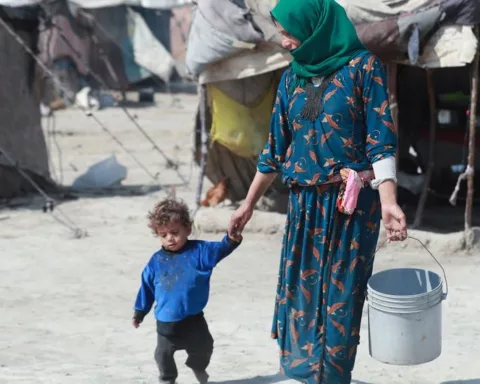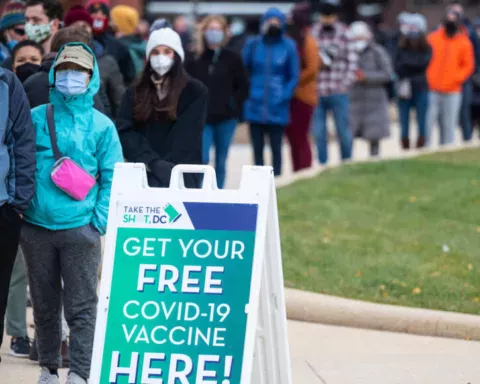“Despite the immense efforts to raise sufficient funds in 2020 to maintain UNRWA’s critical services to 5.7 million Palestinian refugees across the Middle East, as of yesterday November 9, UNRWA has run out of money”, Ms. Alrifai said.
“If we do not have additional funding by the end of this month, November, then we will have to enact really disheartening measures that will affect the salaries of our frontline 28,000 UNRWA staff, in the middle of a global health emergency.”
The number of refugees who have contracted COVID-19 has jumped from fewer than 200 in July to nearly 17,000 as of this week, she said. The situation partly reflected the situation in the countries the refugees were in, and numbers had risen across the region.
Slowing the spread
UNRWA had put measures in place to slow the spread of the virus, including giving medical consultations by phone, delivering humanitarian assistance to avoid overcrowding at distribution centres, and blending school with remote learning. But respect for lockdown measures had increasingly given way to pressure on people to leave home in search of a daily wage.
“This in turn has of course invited the virus into the refugee communities”, Ms. Alrifai said.
UNRWA was established following the 1948 Arab-Israeli conflict, and has operations in Gaza and the West Bank, but also in Lebanon, Jordan and Syria, funded almost entirely by contributions from UN Member States.
The agency usually needs $50 million per month to cover staff salaries for services to 5.7 million in need, and now requires $30 million in the next two weeks to ensure it can continue to pay staff salaries, otherwise it will have to pay partial wages and defer the rest until it had enough funds, Ms. Alrifai said.
Funding mismatch
She added that UNRWA, which plays an important part in stabilising the region, would be devastated if it could not continue running health centres and schools for more than 500,000 children, but this year it had not received sufficient funds from donors, despite overwhelming political support at the UN General Assembly.
“So, at the centre of our crisis is a mismatch between the political support we get from UN member states and the financial contributions.”
Tribute paid to veteran Palestinian negotiator
Tributes have been paid to the veteran Palestinian official and chief negotiator in search of a peaceful resolution to the Israeli-Palestinian conflict, Saeb Erekat.
He died at a hospital in Jerusalem on Tuesday, after being admitted in mid-October, due to complications related to COVID-19.
The Palestinian Authority has declared a three-day period of mourning, with flags to be flow at half-staff, according to news reports.
UN chief António Guterres, said he was “deeply saddened”, by his passing.
“I am grateful to have known Dr. Erekat and to have called him my friend. He was dedicated to the peaceful pursuit of justice, dignity and the legitimate rights of Palestinians to self-determination, sovereignty and statehood.
“Now is the time to continue his crucial work and end the conflict that has tragically affected the lives of so many”, the statement continued. “I reiterate my own and the United Nations commitment to support all efforts to bring the parties together to achieve a long-awaited, just and sustainable two-State solution, with Israel and Palestine, living side by side in peace and security.”
The UN Special Coordinator for the Middle East Peace Process, Nickolay Mladenov (UNSCO), extended his “deepest condolences” to both Mr. Erekat’s family and the Palestinian people.
“You remained convinced that Israel and Palestine can live in peace; never gave up on negotiations; and stood proudly for your people! We will miss you, my friend”, he added, in a tweet.






